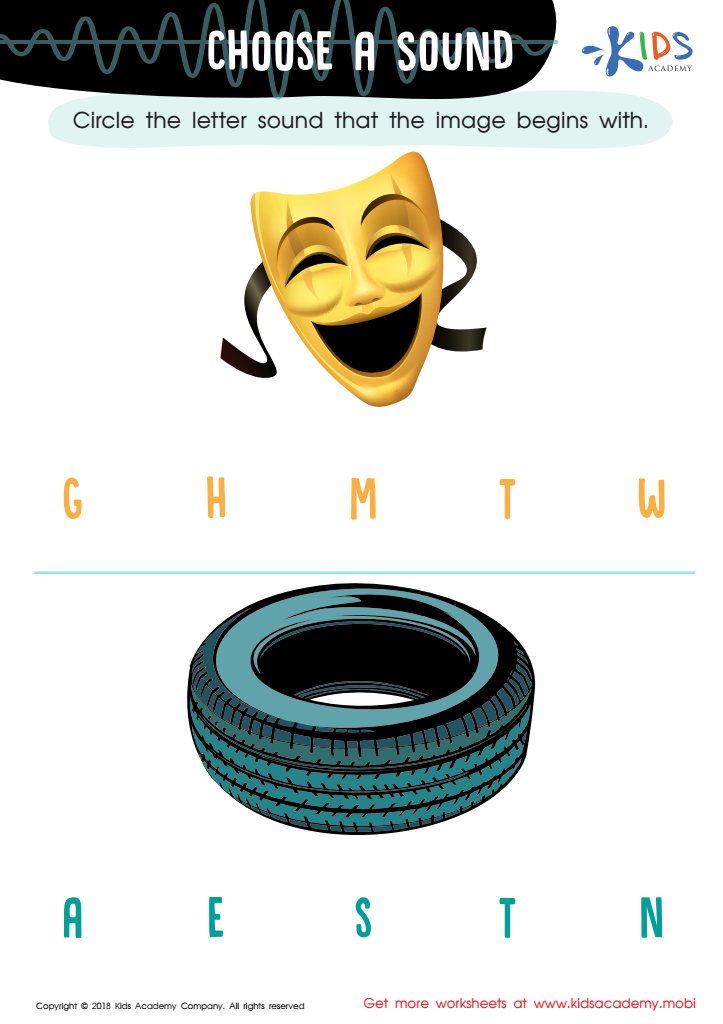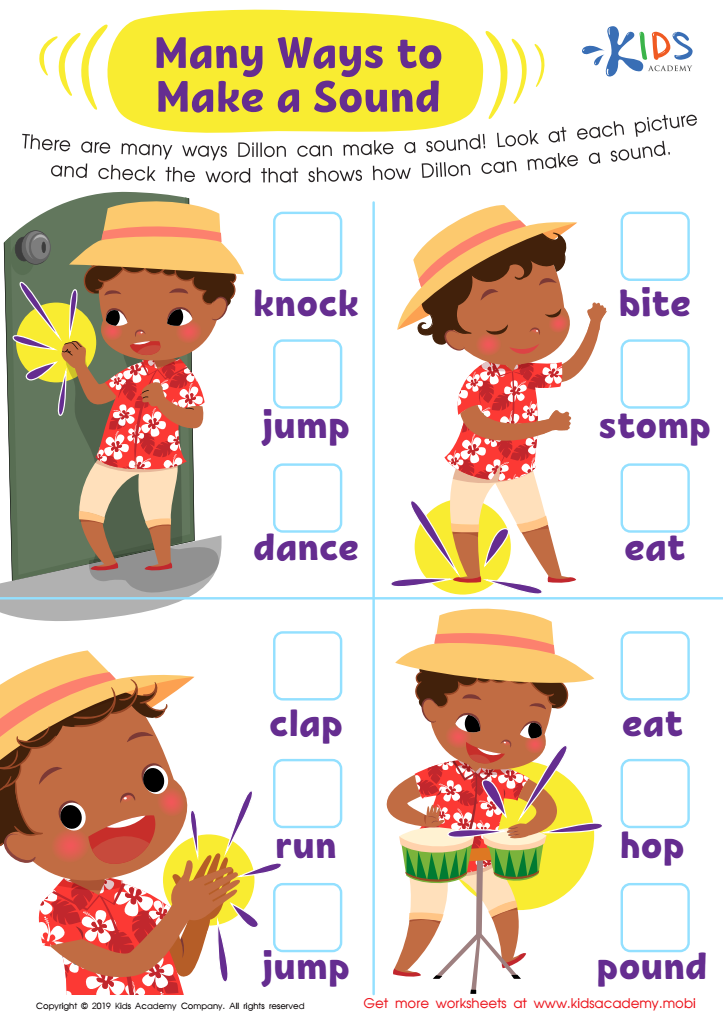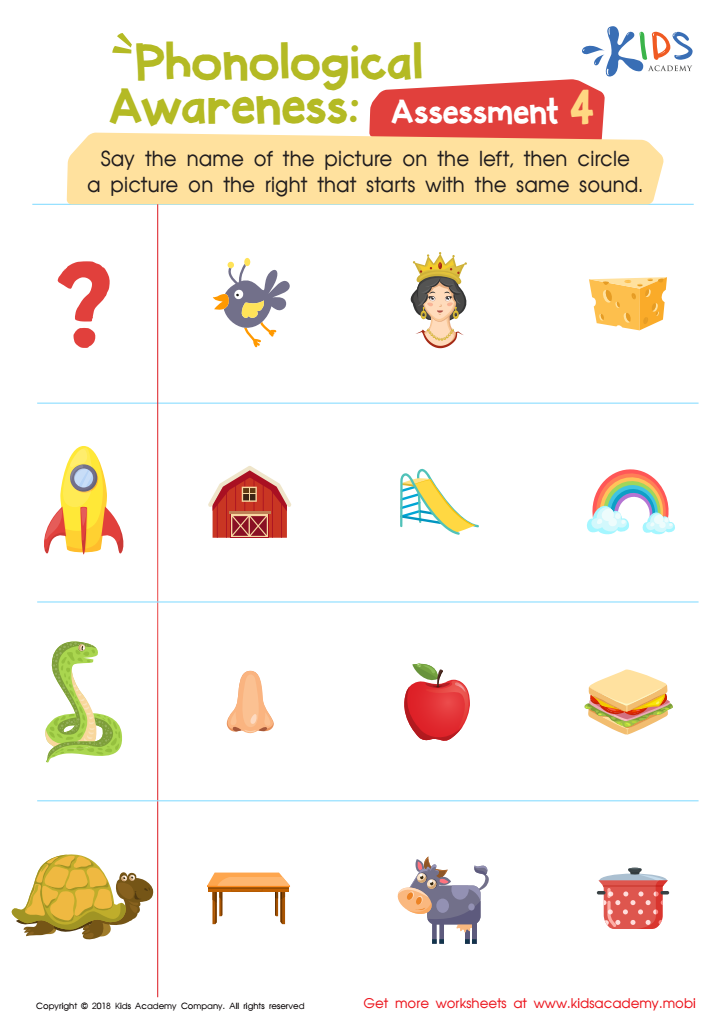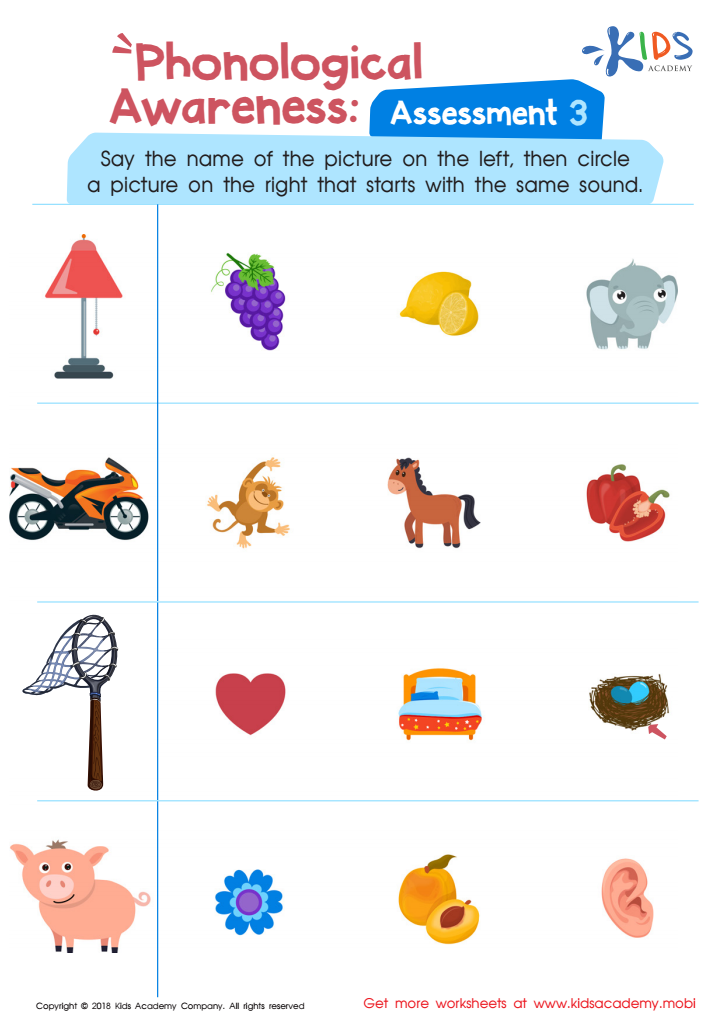Listening skills Elementary Phonics Worksheets for Ages 5-8
4 filtered results
-
From - To
Enhance your child's listening abilities with our Elementary Phonics Worksheets for Ages 5-8. These engaging and interactive worksheets are designed to develop fundamental listening skills, essential for early literacy and language development. Children will enjoy fun activities that include recognizing sounds, identifying letters, and following instructions, all tailored to their age group. Our carefully crafted worksheets provide a solid foundation in phonics, fostering improved comprehension and communication skills. By integrating listening exercises with phonics practice, we ensure your child's holistic development in reading and writing. Start your child on a seamless journey to phonetic mastery today!


Choose a Sound Worksheet


Many Ways to Make a Sound Worksheet


Phonological Awareness: Assessment 4 Worksheet


Phonological Awareness: Assessment 3 Worksheet
Listening skills are foundational for young children's early development and play a crucial role in mastering phonics, an essential part of learning to read. For ages 5-8, developing good listening skills helps children recognize and differentiate the sounds that letters and words make, a key component of phonics. With strong listening skills, students can better identify sounds, match them to letters, and blend them to form words, which builds their reading fluency and comprehension.
Parents and teachers should care because these skills directly influence academic success and confidence. Early phonics instruction relies on children’s ability to hear and process sounds accurately. For instance, distinguishing between similar-sounding phonemes like 'b' and 'p' is vital for spelling and reading. If a child struggles with listening, they will likely have a harder time decoding words and might fall behind in reading, which can impact their entire learning journey.
Good listening skills also enhance overall communication, social interaction, and emotional development. Children who listen well are more effective in following instructions, participating in discussions, and engaging in meaningful conversations, fostering a positive and productive classroom environment. Therefore, nurturing listening skills early on is an investment in a child’s long-term educational and personal success.
 Assign to My Students
Assign to My Students











